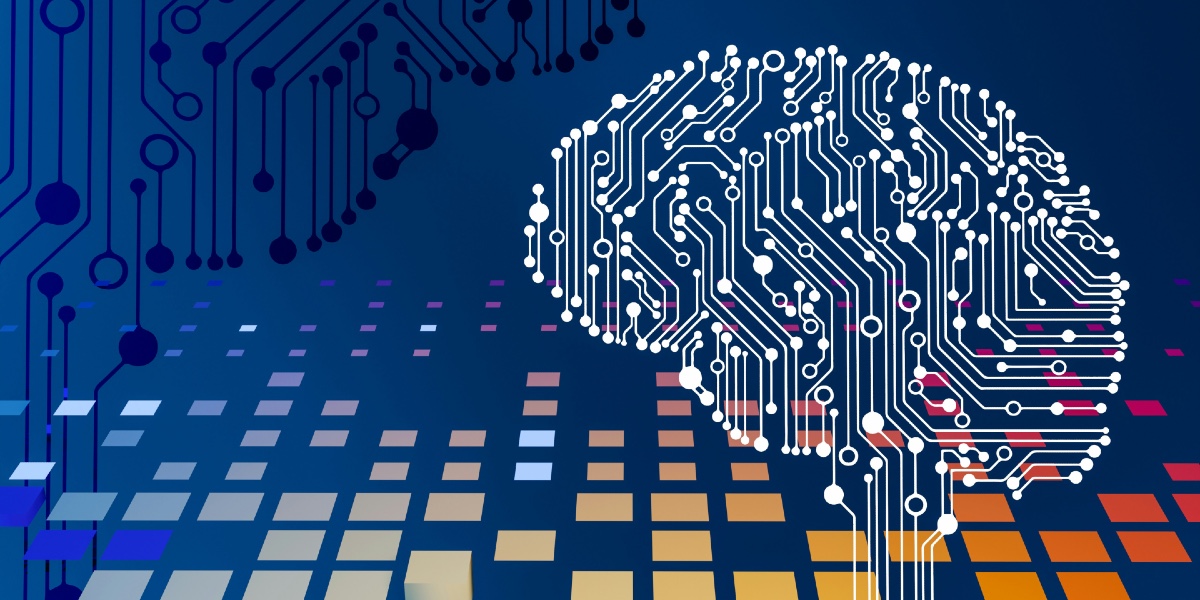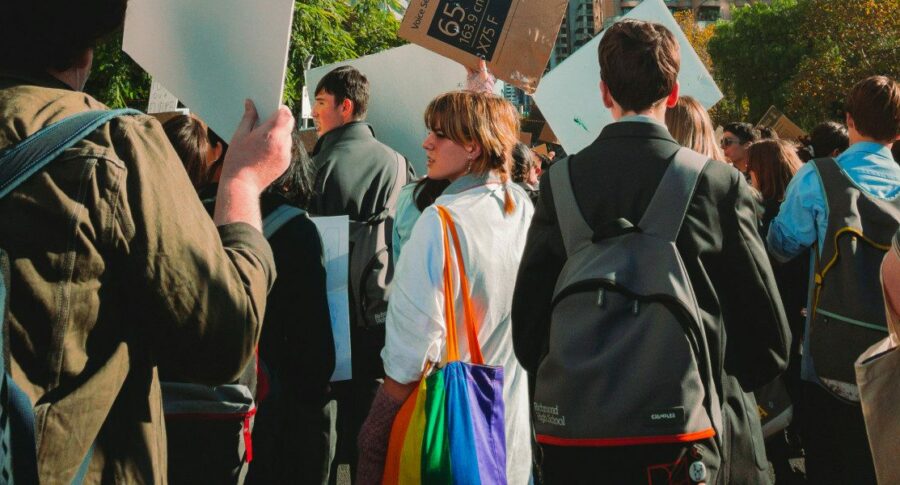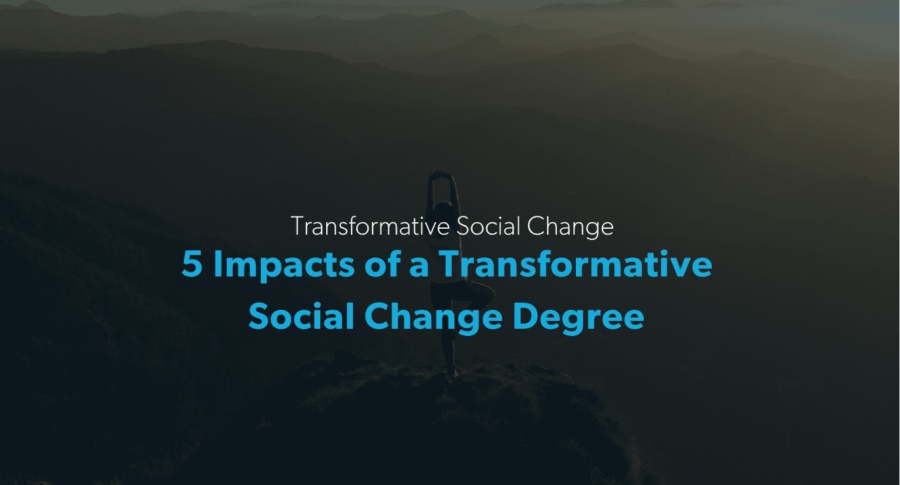For years, when tragedy struck, companies got off the hook by generally offering thoughts and prayers.
These words ring hollow in 2020.
Consumers see companies as people. Companies have quirky brand voices on social media, showing up in our feeds with posts much like friends do. No wonder people have come to expect more from them in the wake of so much hardship—starting with COVID-19 and picking up even more as protests erupted across the country in the aftermath of the murder of George Floyd.
The past few months have seen companies speak up, call themselves out, and promise to be better. It’s a type of momentum that hasn’t been seen before—but all this leads to a critical eye, since words alone no longer cut it. What if a company donates money to an organization devoted to racial justice but then turns around and profits from prison labor (which disproportionately affects people of color)? By the time donations trickle down, who and what are they really helping?
“A lot of companies donate money, yet it doesn’t end up having the impact they expected,” says O’Dell Johnson, Ph.D., an alumnus of Saybrook University’s Existential-Humanistic Psychology program as well as a former Presidential Fellow. Dr. Johnson is the founder and CEO of the Institute for Education and Justice, a criminal justice reform organization. “What we’re seeing here is corporations giving money to entities, and by the time it gets to the people the donations should actually be helping, it doesn’t make as much of a difference as the original investment would have.”
So what would be better? The key word is investment. In order to have proper investment, companies need to build relationships with the communities they seek to help.
Even though it seems like companies should just “do the right thing,” they are often too focused on perception and their bottom line to focus on much else. What role should companies have in social movements like Black Lives Matter? And are they willing to do what it takes to actually create tangible change?

Hypocrisy in activism vs. actions
If a company says it supports Black Lives Matter, it needs to do more than just say so.
Companies can’t simply capitalize on the moment. Take Microsoft. Artist Shantell Martin was commissioned by Microsoft and its advertising firm McCann Erickson to make a Black Lives Matter mural on the Microsoft store in New York City on June 3. Martin, however, declined after receiving an insensitive email from the team, that said: “Hoping to complete the mural while the protests are still relevant and the boards are still up …”
Worth Rises is a nonprofit advocacy organization, dedicated to dismantling the prison industry. In May 2020, it published its annual report: The Prison Industry—Mapping Private Sector Players. They called out some big names in the sector, and for the first time introduced a harm score for each corporation that measures involvement in human rights violations in the prison industry and flags corporations that support prison labor. Each harm score takes into account the gravity of the violation, how they were responsible for it, and their responsiveness to advocacy engagement.
Corporations that scored more than 10 points are recommended for divestment. Microsoft has a harm score of 11.
“It’s contradictory. Companies want to show that they’re culturally and socially sensitive, but they’re still making their profits lead the way,” Dr. Johnson says. “All of this is guided by profits—and a lot is also guided by a large amount of racism and disenfranchisement as well.”
Aramark is another company that plays both sides—for profit (by using unpaid labor) and for credit. The American foodservice, facilities, and uniform provider is the main supplier of CoreCivic, one of the largest privately funded American prison systems. Aramark partners with more than 600 college campuses and is a $16.2 billion company. It has been cited by activists over the years for violating human rights and supporting the prison industry.
A Mother Jones article detailed the struggle of one previously incarcerated individual, Bert Davis, who worked for Aramark in prison—for no pay. Working out of Santa Rita Jail in Alameda County in California, Davis is now a part of a lawsuit against Aramark and Alameda County, arguing that the 40-hour work weeks of unpaid kitchen jobs were forced labor. A particular poignant point from the Mother Jones article: “While the 13th Amendment bans slavery, it makes an exception for work performed ‘as a punishment for crime,’ essentially permitting forced labor in prisons.”
“It’s like the new Jim Crow,” Dr. Johnson says. “This system has elements of enslavement. We have people who are in prison working for zero, practically. Some corporations are benefiting greatly from the products that are being made out of these prisons.”
Yet when protests began in May over the murder of George Floyd, Aramark released a statement citing its outrage and pointing employees to its Employee Assistance Program.

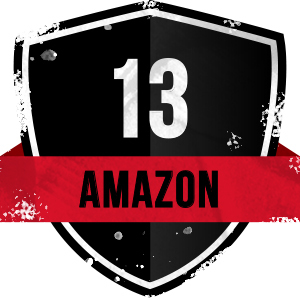
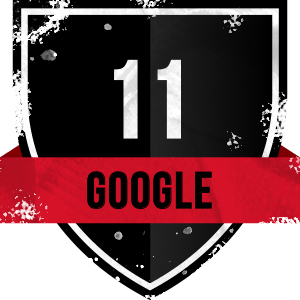
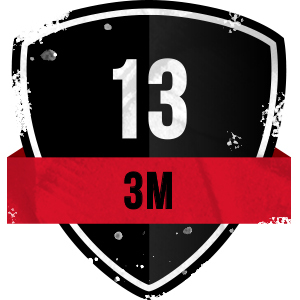
The harm scores of Amazon, Google, and 3M. Amazon is ranked #2, Alphabet (Google's parent company) #22, and 3M #97 on the Fortune 500.

A systemic upheaval
According to Dr. Johnson if companies are willing to put their skin in the game to reap the possible benefits of saying “Black Lives Matter”—of appearing woke and with the times—they must be willing to analyze AND sacrifice themselves. They need to take a systemic approach to uproot life and business as they know it. Otherwise, they’re taking a Band-Aid approach to a crisis that has festered for hundreds of years. To combat hypocrisy, they need to be willing to change.
A lot of the work that companies preach they are willing to do would actually require them to change their business models. It will require revisiting how certain companies make products or the business relationships they have. But that change affects the entire economy. For example, if prisons are shut down, especially in rural U.S. cities that depend on the boosts to the local economy that prisons bring, alternative investment strategies will be needed to help these towns survive. Currently, 70% of prisons are located in rural America. Similar to the arguments people are making about defunding the police and reallocating those resources, the same discussion needs to include prisons. Instead of prisons, build hospitals. Instead of prisons, build schools.
It’s a layered approach. Dr. Johnson explains what can happen, using an example of a company that hired 24 previously incarcerated people. While it was great to give these individuals the opportunity, most of these employees were living in halfway houses, surrounded by people who just got out of prison. They weren’t set up for a wraparound support that would allow them to truly succeed.
“If you’re going to take on this kind of work, fully take it on and address this holistically,” Dr. Johnson says. “Instead of just giving them a job and minimum wage, let’s provide access to housing so they can have a decent place to live, instead of still living in the system. If we’re talking about investing, truly investing, let’s invest in all of it.”
But how do companies begin to invest properly? One way is by building relationships with the community they’re hoping to impact.
“To have the relationship is key,” Dr. Johnson says. “When you have a relationship, you can share your stories—then you can identify how best to invest in the community. If you look at it from a distance as an observer, you’ll never get it right.”
When companies build relationships on the ground and in communities, they can actually get constituents what they need and create change. THAT is true investment. It opens the door on both sides, and these relationships can help build a more equitable future together.
“You have to send people down to those communities, tell them in person that you care, and build a relationship,” Dr. Johnson says. “Those real conversations enable people to be honest about what’s actually going on. These companies can actually hear honest answers, like, ‘I don’t need that. I need this.’”
The systemic issues in our society will only be solved from a multifaceted human approach. Humans have made it the way it is—and they can change it too. After all, who is behind the social platforms of companies? Who is behind the blanket statements that are released time and time again? Despite their voice and influence, companies aren’t people—they are run by people. And if they wish to see change in society, they must start with themselves.

Learn more about Saybrook University
If you are interested in learning more about the community and academic programs at Saybrook University, fill out the form below to request more information. You can also apply today through our application portal.
Find Out More
Recent Posts

